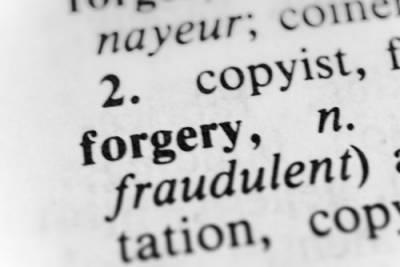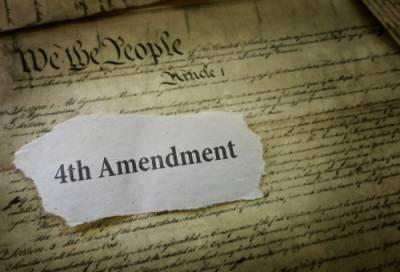Recent Blog Posts
What Penalties Can I Face for Texting While Driving in Illinois?
 When you are behind the wheel, you are required to follow a multitude of different driving laws, and these are meant to protect the safety of everyone who uses the roads. Understanding these laws can not only reduce the chances of being involved in car accidents or other situations that put you or others in danger, but it can also help you avoid traffic violations. However, people often make mistakes, and you could find yourself being pulled over by a police officer and facing a traffic ticket for texting while driving or other violations. In these cases, you will want to understand exactly how Illinois law applies to your situation, including the penalties that may apply for a violation.
When you are behind the wheel, you are required to follow a multitude of different driving laws, and these are meant to protect the safety of everyone who uses the roads. Understanding these laws can not only reduce the chances of being involved in car accidents or other situations that put you or others in danger, but it can also help you avoid traffic violations. However, people often make mistakes, and you could find yourself being pulled over by a police officer and facing a traffic ticket for texting while driving or other violations. In these cases, you will want to understand exactly how Illinois law applies to your situation, including the penalties that may apply for a violation.
Illinois Law Regarding Cell Phones and Electronic Devices
In Illinois, drivers are prohibited from using “electronic communication devices” while operating a vehicle on a roadway. Electronic communication devices include cell phones, as well as other handheld or portable computers and GPS or navigation devices that are not integrated into a vehicle. Prohibited uses of these devices include making calls (except in hands-free mode), reading or sending text messages or emails, or watching or streaming videos.
When Is Retail Theft Charged as a Misdemeanor or Felony in Illinois?
 There are a variety of situations in which a person may find themself facing criminal charges. These charges should always be taken seriously, since a conviction can result in multiple different types of penalties, including fines, jail time, probation, community service, and a permanent criminal record. Retail theft, commonly known as shoplifting, is an offense that can result in either misdemeanor or felony charges, and those who have been accused of retail theft should be sure to understand how Illinois law applies to their situation, the potential consequences they may face, and the best defense strategies against these charges.
There are a variety of situations in which a person may find themself facing criminal charges. These charges should always be taken seriously, since a conviction can result in multiple different types of penalties, including fines, jail time, probation, community service, and a permanent criminal record. Retail theft, commonly known as shoplifting, is an offense that can result in either misdemeanor or felony charges, and those who have been accused of retail theft should be sure to understand how Illinois law applies to their situation, the potential consequences they may face, and the best defense strategies against these charges.
What Is Considered Retail Theft?
While shoplifting will often involve pocketing merchandise and leaving a store without paying for these items, retail theft can take a variety of other forms. According to Illinois law, retail theft can also include:
What Makes Underage Drinking Such a Serious Offense in Illinois?
 Although this New Year’s Eve will likely include fewer social gatherings than in years past due to the pandemic, it is common for minors to engage in underage drinking at this time of year, either with or without their parents’ knowledge. While this may seem innocent enough, underage drinking often has serious legal and personal consequences that can affect a teenager or young person for the rest of their life.
Although this New Year’s Eve will likely include fewer social gatherings than in years past due to the pandemic, it is common for minors to engage in underage drinking at this time of year, either with or without their parents’ knowledge. While this may seem innocent enough, underage drinking often has serious legal and personal consequences that can affect a teenager or young person for the rest of their life.
Consequences of Underage Drinking in Illinois
In Illinois, underage drinking is a serious offense; in fact, while it is not a felony, it is a misdemeanor, carrying with it possible penalties including jail time and substantial fines. In addition, Illinois has a “Zero Tolerance” policy for underage drinking and driving. If a person under the age of 21 is caught on the road driving with any alcohol in their system, even if they are below the legal blood alcohol content limit for adults, they can face serious consequences, including getting their driving privileges revoked for two years at minimum. In some cases, underage drinking and an accompanying charge or conviction can also have far-reaching effects on a teenager’s future, including:
What to Know About Commercial Driver’s License Violations in Illinois
 In Illinois, if you drive a truck or other commercial vehicle, you must possess a commercial driver’s license (CDL) in addition to a personal driver’s license. Both to earn your CDL and to keep your CDL, you need to meet higher standards than the average driver. The same goes for the laws that you must abide by, and as a result, many commercial driver’s license violations are not as easy to handle as a typical traffic violation. In fact, serious commercial driver’s license violations in Illinois like commercial driver’s license DUI, aggravated speeding, reckless driving, and even failure to report violations from other states can lead to not only driver’s license suspension but also much more serious penalties.
In Illinois, if you drive a truck or other commercial vehicle, you must possess a commercial driver’s license (CDL) in addition to a personal driver’s license. Both to earn your CDL and to keep your CDL, you need to meet higher standards than the average driver. The same goes for the laws that you must abide by, and as a result, many commercial driver’s license violations are not as easy to handle as a typical traffic violation. In fact, serious commercial driver’s license violations in Illinois like commercial driver’s license DUI, aggravated speeding, reckless driving, and even failure to report violations from other states can lead to not only driver’s license suspension but also much more serious penalties.
8 Common Examples of Forgery and Other Deceptive Practices in Illinois
 In Illinois, in its simplest terms, forgery can be understood as the knowing and willful falsification of signatures, documents, or objects. Once such items are falsified, the charges can be compounded by the propagation of these false items or other defrauding activities that lead to another individual or organization being misrepresented or losing something valuable, money or otherwise. Forgery and other deceptive practices are quite common, mainly because they can run the gamut, comprising a wide variety of defrauding actions.
In Illinois, in its simplest terms, forgery can be understood as the knowing and willful falsification of signatures, documents, or objects. Once such items are falsified, the charges can be compounded by the propagation of these false items or other defrauding activities that lead to another individual or organization being misrepresented or losing something valuable, money or otherwise. Forgery and other deceptive practices are quite common, mainly because they can run the gamut, comprising a wide variety of defrauding actions.
Common Acts of Forgery and Illegal Deception
Among the many examples of forgery and other deceptive practices in Illinois are:
-
Forged checks—If you sign someone else’s name on their check without their knowledge or approval, you are committing fraud.
What to Do If Facing a Domestic Violence Charge During Lockdown
 With lockdowns due to the COVID-19 pandemic having occurred throughout the country, and indeed the entire world, there has been an uptick in domestic violence as partners and families are spending more time in close quarters. Recently, November 25 marked the International Day for the Elimination of Violence Against Women, with protests in countries around the world attempting to raise awareness of this important issue.
With lockdowns due to the COVID-19 pandemic having occurred throughout the country, and indeed the entire world, there has been an uptick in domestic violence as partners and families are spending more time in close quarters. Recently, November 25 marked the International Day for the Elimination of Violence Against Women, with protests in countries around the world attempting to raise awareness of this important issue.
With tensions running high during this time, you may also be more likely to face allegations of domestic violence that you believe to be unfounded. If so, an attorney can help you protect your rights and develop a defense strategy through which your perspective can be heard. Know that an accusation does not necessarily have to result in a criminal conviction.
Responding to Allegations of Domestic Violence in Illinois
5 Examples of Illegal Search and Seizure in Illinois
 If the police find evidence of illegal drugs on your person or property, you may be at high risk of a conviction on drug charges. However, if that evidence was obtained through an illegal search and seizure, your attorney can help you stand up for your rights and fight for that evidence to be excluded, which may help you avoid a sentence. There are several ways in which a search and seizure can be unlawful, and your lawyer will help you determine if any of them is a factor in your case.
If the police find evidence of illegal drugs on your person or property, you may be at high risk of a conviction on drug charges. However, if that evidence was obtained through an illegal search and seizure, your attorney can help you stand up for your rights and fight for that evidence to be excluded, which may help you avoid a sentence. There are several ways in which a search and seizure can be unlawful, and your lawyer will help you determine if any of them is a factor in your case.
How the Fourth Amendment Addresses Illegal Search and Seizure
The Fourth Amendment to the U.S. Constitution states that “the people have a right to be secure in their persons, houses, papers and effects, against unreasonable searches and seizures.” According to the Fourth Amendment, for a search and seizure to be legal, the officers must either have your permission to search your home, your vehicle, your person, or your other property, or they must have a judge-approved warrant to search those same places.
What Is the Difference Between Aggravated Speeding and Reckless Driving?
 While both aggravated speeding and reckless driving are more than minor traffic violations, they are still separate and different charges, each carrying with them relatively severe penalties. In some cases, the two can be compounded with other charges, making for an especially challenging case to manage and difficult punishments to handle.
While both aggravated speeding and reckless driving are more than minor traffic violations, they are still separate and different charges, each carrying with them relatively severe penalties. In some cases, the two can be compounded with other charges, making for an especially challenging case to manage and difficult punishments to handle.
What Is Aggravated Speeding?
Speeding may seem like a minor and oftentimes innocuous traffic violation, at least relative to other dangerous behaviors, but there are instances when speeding is not simply a minor infraction. As speed increases, it can become more and more dangerous, and excessive speeds can result in aggravated speeding charges under Illinois law.
4 Strategies to Help You Fight Burglary Charges in Illinois
 If you are accused of burglary, which is considered a felony in Illinois carrying with it harsh penalties, defending your case can be challenging. The prosecution will likely muster all available evidence in an attempt to establish your guilt. However, a skilled defense attorney can help you protect your rights and work to ensure a fair legal process so that you have a chance of avoiding unnecessary penalties. Depending on the situation, here are some defense strategies that your attorney could use.
If you are accused of burglary, which is considered a felony in Illinois carrying with it harsh penalties, defending your case can be challenging. The prosecution will likely muster all available evidence in an attempt to establish your guilt. However, a skilled defense attorney can help you protect your rights and work to ensure a fair legal process so that you have a chance of avoiding unnecessary penalties. Depending on the situation, here are some defense strategies that your attorney could use.
1: Challenge Assertions of Intent
In Illinois, burglary is defined as unlawfully entering or remaining on a property with the intent to commit a felony or theft. Your attorney may be able to help you avoid a burglary conviction by challenging the prosecution’s attempts to establish your intent. If this strategy is successful, your charges may be dismissed or reduced to a lesser offense like criminal trespassing.
Is It Illegal to Have a Prescription Drug Without a Prescription?
 Especially during these times of pandemic anxiety, many people may look for ways to relax in the form of opioids and other prescription drugs. You might think this is not a crime because the drugs are not illegal, but if you yourself do not have a prescription for those drugs and yet still possess, use, distribute, or sell them, you may be charged with a drug crime in Illinois. Here are the types of drugs and their possession consequences.
Especially during these times of pandemic anxiety, many people may look for ways to relax in the form of opioids and other prescription drugs. You might think this is not a crime because the drugs are not illegal, but if you yourself do not have a prescription for those drugs and yet still possess, use, distribute, or sell them, you may be charged with a drug crime in Illinois. Here are the types of drugs and their possession consequences.
Types of Prescription Drugs You Cannot Possess without a Prescription
Before the COVID-19 pandemic even arrived in the United States, there was an epidemic of another kind destroying lives: the opioid epidemic. And while the focus these days is primarily on the virulent pandemic, illegal prescription drug use, abuse, possession, sale, and distribution are all common, possibly even more so, during these difficult times.







